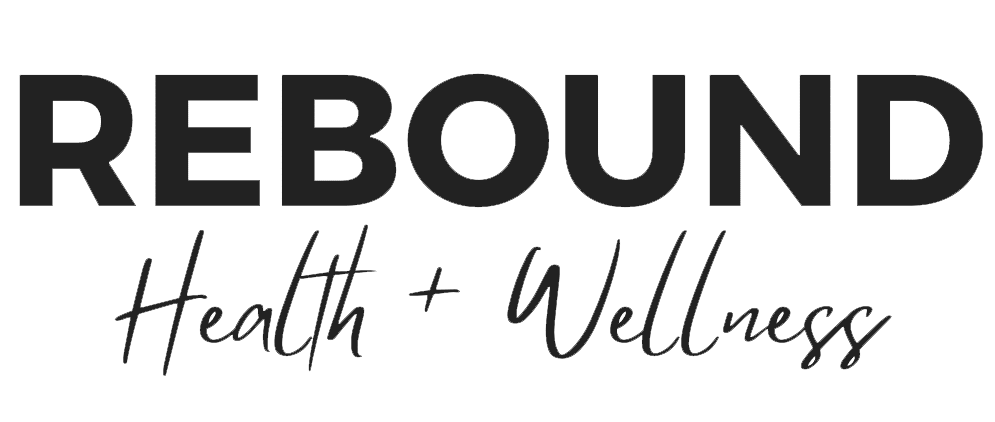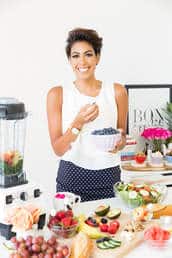By: Norine Khalil, RD
As an unapologetic feminist, I have focused the majority of the energy I put into my practice on making women feel like the queens that they are. If you ask me what word comes to mind when I think of women, it is strength. Being in the health and fitness industry, the transformation in what we see as ‘healthy’ in women has definitely changed. Women are associating strong with beautiful, which is most definitely a step in the right direction. However, we still have a long way to go in the positive self-talk department. As women, we don’t need to be #girlswholift to see ourselves as strong and capable. We don’t need to fit this new image of “health” to be and feel healthy. How we feel about ourselves should not be measured by the number of squats we did at the gym this morning. We are unique, incredible beings whose bodies each tell a very special story – and that is what we should be focusing on. Feeding the mind and body with love and nutrients that give you the strength to continue feeling your best – putting your energy into you. The real #relationshipgoals.
The female body is, in my humble and very bias opinion, the strongest most remarkable creation on this planet. It’s complex, it’s capable, it’s resilient, and it’s beautiful. So while the world is finally beginning to open its eyes to what we are capable of, we need to be ready to take over the world, when that inevitable time comes. And, even though I have zero doubt in my mind that the take over can surely happen even with menstrual cramps and menopause, it doesn’t hurt to dull the cramps and hot flashes with some nutritious goodness, amiright?
I’m breaking down some of the best foods to support women’s health for all of the fabulous ladies out there gearing up to take their throne.
Flaxseed
Ground flaxseed is a source of Omega 3, fibre, and compounds called lignans. Lignans can displace estrogen in the body and mimic it, which can allow for excess estrogen to be cleared through the liver. Why is this important? Well ladies, if you are one of the many who suffer from extremely painful, heavy periods (thank you, Mother Nature), this may be the result of “estrogen dominance”. Including foods such as flaxseed in your diet, that can allow for successful clearing of extra estrogen in the body, may in turn help manage menstrual cramps.
Green Tea
We all know I’m obsessed with tea…and now I have yet another reason why. While it is often recommended to avoid caffeine if you have difficult “monthly gifts”, the catechins found in green tea (namely EGCG) have been shown to ease menstrual cramps and help with heavy flow. Green tea is also a great source for antioxidants, which are beneficial for uterine health (and overall health). So instead of turning to that cup of coffee when you’re feeling irritable, bloated, and crampy, try ditching the java and putting on a pot of tea instead. You won’t regret it.
Brassica Vegetables
I just love saying that word. Brassica. Fantastic, isn’t it? Apart from rolling off the tongue, this fabulous family of vegetables contains compounds that aid in the elimination of extra circulating estrogen in the body, which is particularly helpful during the first two weeks of your cycle when estrogen dominance is more prevalent. The most commonly consumed Brassica vegetables include: brussels sprouts, cabbage, cauliflower, broccoli, and kale. Limiting these vegetables during the first 14 days of your cycle may be wise if you are prone to painful, heavy periods.
Fibre
You won’t meet a dietitian who is not a fibre fan. Fibre is the star of the show when it comes to satiety, energy, and blood sugar regulation. For women who suffer from polycystic ovarian syndrome (PCOS) and are at higher risk for insulin resistance, fibre is a key piece of puzzle for balancing your blood sugar throughout the day. Including high fibre foods (look for those with at least 3 grams of fibre per serving) at each meal can help balance blood sugar and avoid blood sugar spikes and crashes. Aim for at least 35-40 grams of fibre per day to meet your daily recommendation. Foods that are high in fibre include: nuts, seeds, whole grains like oats, wild rice and buckwheat, vegetables, and legumes such as lentils and beans.
Vitamin D
Not only is Vitamin D important for the maintenance of strong bones, it also plays a key role in female hormonal balance – namely progesterone and estradiol. Research has shown that higher doses of Vitamin D have had positive effects on estrogen dominance, one possible contributor to infertility. In addition, Vitamin D deficiency has also been shown to be associated with Polycystic Ovarian Syndrome (PCOS), a condition that can also cause fertility issues. The best way to absorb Vitamin D is through sunlight – something us Canadians don’t get enough of. Supplementation can be an important piece of the puzzle for women’s health, and it is therefore important to get your Vitamin D levels checked through bloodwork and speak with a healthcare provider to determine the best supplement support strategy for you.
There you have it – my favorite foods for women’s health. Embrace the power and strength of the female mind and body, and support one another in your journeys of learning, growth, and love. Keep shining, ladies.

